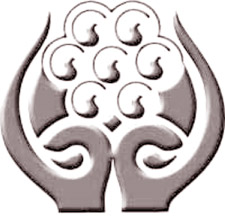|
Despite Indo-Pak issues:
Smaller countries within SAARC should play lead role
Indunil THENUWARA in Kathmandu, Nepal
 Smaller countries in the South Asian region should play a lead role
within the SAARC framework despite the grouping being dominated by
Indo-Pakistan issues. Smaller countries in the South Asian region should play a lead role
within the SAARC framework despite the grouping being dominated by
Indo-Pakistan issues.
Smaller countries within the regional bloc such as Sri Lanka,
Maldives and Bhutan can hold their own and strengthen their positions
within SAARC by concentrating on the services industry, a Journalism
Workshop on Regional Cooperation in South Asia was told.
Senior Operations Officer, World Bank South Asia Region, Diep
Nguyen-Van Houtte told a panel discussion at the workshop that these
countries should look at the provision of services such as tourism, IT
and medical services to the rest of the region even if they may not be
able compete with the bigger nations within the bloc in the areas of
production and trade.
All these smaller countries hold much potential for their larger
neighbours with regard to the services industry. "Size is no reason for
them to be sidelined within the grouping. Take the example of Singapore.
Despite being such a tiny country, the South East Asian nation is at the
top of World Bank's development indices.
This proves that small is beautiful and that size is no barrier when
it comes to holding your own," Nguyen-Van Houtte told the panel
discussion.
The rivalry between India and Pakistan has dominated SAARC issues,
overshadowing all regional meetings and areas of discussion.
However, this position has changed over the past few years with the
spotlight shifting to other countries as well, she said.
Nguyen-Van Houtte cited the specific example of the political turmoil
in Maldives receiving much media attention within the SAARC region as
well as outside due to the archipelago being a member of SAARC.
"Considering its size, the political changes in Maldives would have gone
unnoticed to the rest of the world if not for its position within SAARC.
It received unprecedented attention from the world's media due to its
position within SAARC," she said.
The journalism workshop on Regional Cooperation in South Asia was
organised by the World Bank and the Thomson Reuters Foundation and was
held over three days. Journalists representing media organisations from
Sri Lanka, Pakistan, Nepal, Bangladesh, Maldives, Bhutan and Afghanistan
participated.
|

